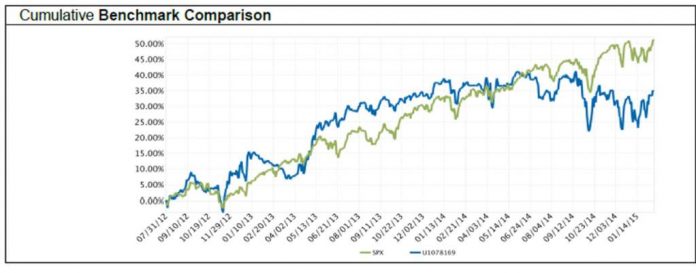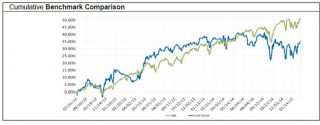Robin Hood Minor Asset Management Cooperative (http://www.robinhoodcoop.org/) is an innovative alternative to Wall Street banks and financial institutions. It’s also the world’s first cooperatively owned hedge fund.
Founded in Finland in 2012, the main purpose of the Robin Hood Co-op is to use experimental investment technologies to expand the commons and public domain, while offering ordinary people access to income outside of paid work. Among its founding members are several former economics professors from Aalto University (who were fired for starting the Robin Hood Co-op). The co-op presently has over 350 members from 15 different countries and is valued at roughly half a million euros.
Like a hedge fund, the fund’s growth is based on the principle of producing new financial assets by hedging existing ones. Fund managers employ a data mining algorithm called “Parasite,” which follows all the transactions of the US stock markets, identifies the spreads and the star investors and follows their “swarming.” In other words, Parasite is designed to imitate the emerging consensus actions of the world’s best investors.
In the nearly three years since its formation, it has consistently kept pace with the S&P index. In its first year the value of its portfolio rose 30.75%. In the second year, it rose another 9.4%. Since June 2014 it seems to be performing slightly under the S&P index. Profits are primarily used to fund anti-corporate projects that expand the commons or public domain.
How to Join
To join the cooperative, people need to buy one share (30 euros) and pay a onetime membership fee (30 euros). They can buy as many additional shares as they want at any point.
Every member has one vote independent of the numbers of shares they own. They use it to vote in on-line member meetings, where important co-op issues are decided. They can also suggest Robin Hood Projects, become part of the selection board and participate in the work of the cooperative. For examples of proposed projects for to 2015 go to Projects.
When new members buy shares, they are given six options for how they want their net profits (profit minus co-op’s costs) between themselves Robin Hood Projects. If they choose to keep more than 50% of the profit, there is a onetime fee.
Once a month, the new money invested in shares is exchanged for dollars and sent to the co-op’s broker, Interactive Brokers, in New York. This creates a new series, which is invested based on information from the Parasite algorithm. Thus, the performance of the investment fund depends both on the euro/dollar exchange rate fluctuations and the success of the co-op’s investment portfolio on the stock exchange.
Robin Hood Co-op is a “slow” investment organization. Thus people must notify the co-op management if they wish to sell their shares. The actual value of each share is calculated after the end of the fiscal year (end of June) when costs of the co-operative are deducted from them. Finnish law allows them to transfer monies from sold shares six months after the end of the fiscal year. People can also sell their shares to other members.
Avoiding Outrageous Bank Fees
The co-op website is set up to use Transferwise, a low cost non-bank method of overseas money transfer. In countries (like Australia and New Zealand) that aren’t set up yet for Transferwise, Robin Hood Co-op encourages members to avoid exorbitant bank charges by paying their membership fee and buying shares in bitcoins (BTC).
I paid my 60 euros by exchanging $NZ 97for 0.27248653 BTC at Coined (a New Zealand bitcoin exchange) and using Coinbase to transfer the bitcoins to Robin Hood Co-op.
The Obsolete “Means of Production” Narrative
Above is Max Keiser’s interview with Daniel Hassan about Robin Hood Co-op (starts at 11:42). In it they discuss how the leftist “means of production” narrative is obsolete in a global economy where most wealth is produced via financial transactions. They also discuss how the Parasite algorithm works and how the co-op chooses activist projects to support with their profits.
*Bitcoins are a type of digital currency which operate independently of any central bank and in which encryption techniques are used to regulate the generation of units of currency and verify the transfer of funds.
**Kiwibank is a full service commercial banked owned and operated by the New Zealand government.
Dr. Bramhall is a retired American child and adolescent psychiatrist, activist and political refugee in New Zealand.
Her first book The Most Revolutionary Act: Memoir of an American Refugee describes the circumstances that led her to leave the US in 2002. She has also published two young adult novels about political activism: The Battle for Tomorrow: A Fable
View All Books by Dr. Bramhall >>>
She is involved in the national leadership of the New Zealand Green Party and has a political blog at StuartJeanneBramhall.com
ATTENTION READERS
We See The World From All Sides and Want YOU To Be Fully InformedIn fact, intentional disinformation is a disgraceful scourge in media today. So to assuage any possible errant incorrect information posted herein, we strongly encourage you to seek corroboration from other non-VT sources before forming an educated opinion.
About VT - Policies & Disclosures - Comment Policy





